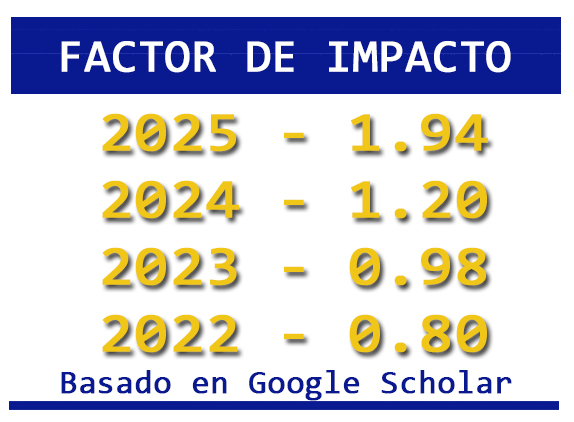SISTEMA INTELIGENTE PARA LA GESTIÓN DE UN CENTRO DE DISTRIBUCIÓN BASADO EN LA IDENTIFICACIÓN DE PRODUCTOS
DOI:
https://doi.org/10.36790/epistemus.v11i23.45Abstract
La globalización, aunada a otros factores, ha originado un conjunto de transformaciones en las decisiones sobre la producción, dando paso a la reestructuración de los mercados y de la organización de la distribución. Esto ha originado una demanda en el desarrollo de sistemas que permitan un mejor control, manipulación, seguimiento y distribución de productos en entornos distribuidos. Dichos entornos favorecen la subdivisión del sistema total en subsistemas más pequeños y abarcables, con la capacidad de interactuar unos con otros, con la intención de alcanzar un objetivo colectivo. En este trabajo se propone un sistema automático-inteligente basado en control distribuido que permite la identificación y gestión de pedidos mediante el uso de agentes inteligentes y la Identificación por Radiofrecuencia (RFID, por sus siglas en inglés: Radio Frequency Identification) para la gestión de un centro de distribución.
Downloads
References
Leitão, P., (2009) Agent-based distributed manufacturing control: A state-of-the-art survey, Engineering Applications of DOI: https://doi.org/10.1016/j.engappai.2008.09.005
McFarlane, D., Marík, V., Valckenaers, P. (2005).Intelligent Control in the Manufacturing Supply Chain.IEEE IntelligentSystems, 20(1), 24-27. DOI: https://doi.org/10.1109/MIS.2005.8
García, A. &Cenjor, A., (2007). Sistema Heterárquico de Control Basado en Agentes para Sistemas de Fabricación, Revista iberoamericana de automática e informática industrial (RIAI), 4, 83. DOI: https://doi.org/10.1016/S1697-7912(07)70194-2
Encinas J.C., García A., de las Morenas J. (2010). Improvements in operations management applied to a 3D simulation connected to a physical platform. Journal of Intelligent Manufacturing, Springer, Netherlands. DOI: 10.1007/s10845-010-0441-0. DOI: https://doi.org/10.1007/s10845-010-0441-0
Chan, S. (1999). Architecture Choices for ERP Systems, Pro- ceedings 5th Americas Conference on Information Sys- tems, Milwaukee, pp. 210-212.
Encinas J.C., García F.P., de las Morenas J., García A. (2009). “Operations Management based on RFID-IMSII”. Proc. of the 23rd European Conference on Modelling and Simulation (ECMS’09). Madrid, Spain. June 9-12.
Blanco, Jesus; García, Andrés; De Las Morenas, Javier; García, Pablo; García-Escribano, Javier. (2010).Application of Distributed Control Theories and RFID in a Miniature Distribution Center.The Third International EURASIP Workshop on RFID Technology.6-7 septiembre. La Manga del Mar Menor (Cartagena). ISBN: 978-84-96997-47-9.
Wooldridge M., G. Weiss, y P. Ciancarini. (2002). Agent-Oriented Software Engineering II.LNCS vol. 2222. Springer-Verlag: Berlin, Germany. DOI: https://doi.org/10.1007/3-540-70657-7
Bonasso, R.P., Firby, J., Gat, E., Kortenkamp, D., Millar, D., Snack, M. (1997). A Proven Three-tiered Architecture for Programming Autonomous Robots.Journal of Experimental and Theoretical
Soto, J. P., Vizcaíno, A., Portillo-Rodríguez, J., Piattini, M. (2008). Recommending Trustworthy Knowledge in KMS by Using Agents. Software and Data Technologies, Springer-Verlag Berlin Heidelberg, 22, 297–309, DOI: https://doi.org/10.1007/978-3-540-88655-6_22
Soto, J.P., Vizcaíno, A., Portillo-Rodriguez, J., Piattini, M., Kusche, O. (2009). A Two-Layer Multi-agent Architecture to Facilitate Knowledge Sharing within Communities of Practice.Inteligencia Artificial (IA), 13(42), 46-54 DOI: https://doi.org/10.4114/ia.v13i42.1045
Downloads
Published
How to Cite
Issue
Section
License

This work is licensed under a Creative Commons Attribution-NonCommercial-NoDerivatives 4.0 International License.
The magazine acquires the patrimonial rights of the articles only for diffusion without any purpose of profit, without diminishing the own rights of authorship.
The authors are the legitimate owners of the intellectual property rights of their respective articles, and in such quality, by sending their texts they express their desire to collaborate with the Epistemus Magazine, published biannually by the University of Sonora.
Therefore, freely, voluntarily and free of charge, once accepted the article for publication, they give their rights to the University of Sonora for the University of Sonora to edit, publish, distribute and make available through intranets, Internet or CD said work, without any limitation of form or time, as long as it is non-profit and with the express obligation to respect and mention the credit that corresponds to the authors in any use that is made of it.
It is understood that this authorization is not an assignment or transmission of any of your economic rights in favor of the said institution. The University of Sonora guarantees the right to reproduce the contribution by any means in which you are the author, subject to the credit being granted corresponding to the original publication of the contribution in Epistemus.
Unless otherwise indicated, all the contents of the electronic edition are distributed under a license for use and Creative Commons — Attribution-NonCommercial-ShareAlike 4.0 International — (CC BY-NC-SA 4.0) You can consult here the informative version and the legal text of the license. This circumstance must be expressly stated in this way when necessary.
The names and email addresses entered in this journal will be used exclusively for the purposes established in it and will not be provided to third parties or for their use for other purposes.















